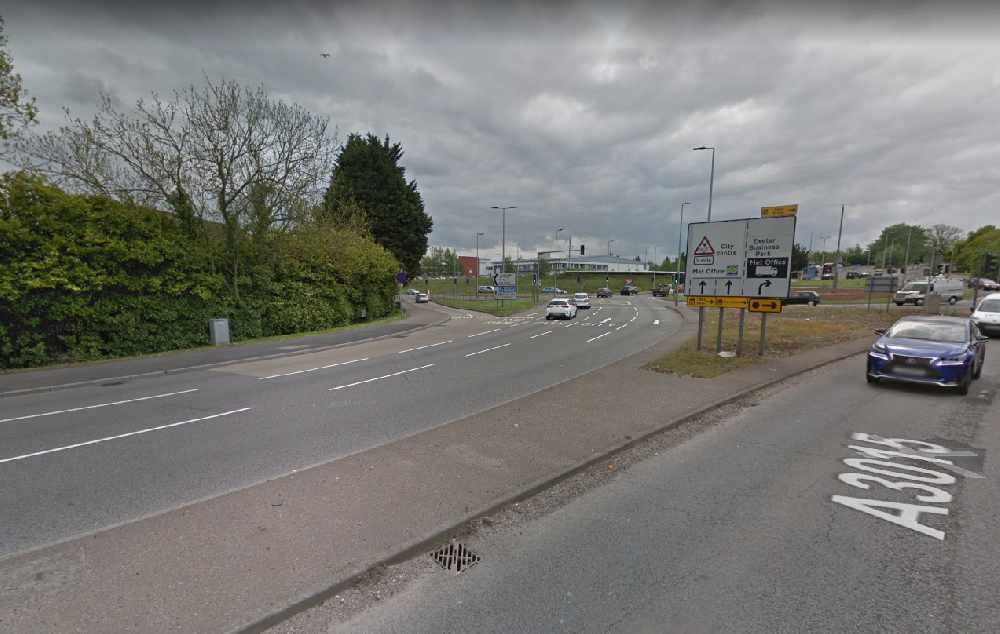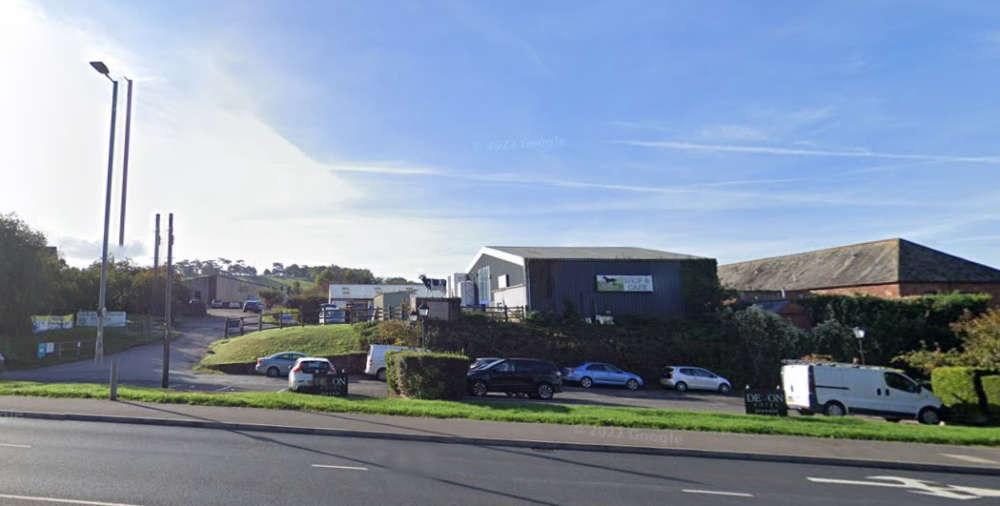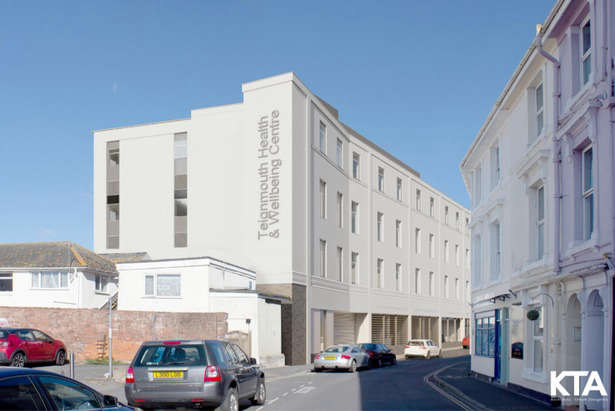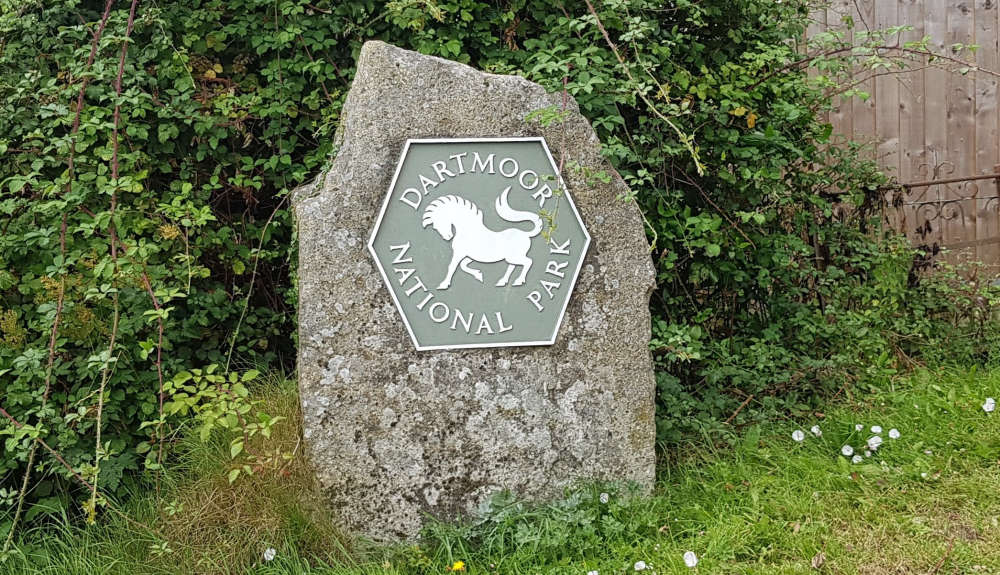
£2.2m worth of improvements are set to be approved next week.
Congestion busting plans to improve one of the main roads into Exeter are set to be approved next week.
Devon County Council’s Cabinet next Wednesday is being recommended to approve the £2.2m junction improvements at the Moor Lane roundabout.
Moor Lane Roundabout currently experiences significant queuing in peak period, in particular, the queues on the A30/Honiton Road westbound approach to Moor Lane Roundabout often extend back to the adjacent M5 J29 in the AM peak, creating a safety issue on the M5, the report to the cabinet says.
The proposed improvements and preferred option involves:
- An additional lane from the Avocet Road junction to create a fourth lane at the roundabout
- Widening of Ambassador Drive to create a northbound merge lane at the Emperor Way roundabout
- Widening the existing refuge islands on the western arms of Emperor Way and Oberon Road
- Widening the shared paths on Ambassador Drive and reducing clutter
- Remarking the lanes on Moor Lane roundabout to create two right turn lanes from Honiton Road to Ambassador Drive
The report of Dave Black, Head of Planning, Transportation and Environment, says: “The Moor Lane roundabout improvements are required to accommodate further growth in the Exeter and East Devon Growth Point. The proposed improvement scheme will provide additional highway capacity at the junction and localised upgrades of pedestrian and cycle facilities in the vicinity.
“The construction of the proposed Moor Lane Roundabout improvements supports economic growth and continued growth in the East of Exeter Growth Point and reflects the adopted documents of the County and local District Councils.”
Mr Black’s report says that there is a planning condition to expand Cranbrook beyond 6,500 homes requiring an improvement scheme, and that improvements to the roundabout will help to unlock that housing, improve access to employment opportunities in the East of Exeter, and improve journey time reliability for public transport users through the junction.
The report does anticipate that there will be some negative impacts as a result of traffic management during the construction works, but adds: “This negative impact will be mitigated as far as possible by liaising with Devon County Council’s highway co-ordination, local businesses and traffic management groups.”
Concerns have already been raised about the merits of highway improvement schemes in the constrained city of Exeter and the scheme’s inconsistency with the emerging Exeter Transport Strategy, but Mr Black’s report notes that additional highway capacity on its own will not solve the city’s transport challenges.
It adds: “The project is a planning requirement of Highways England, provides improved egress from Sowton Industrial estate to roads that have available capacity, and provides additional capacity from the A30/Honiton approach relieving queuing extending back onto the M5.
“The junction is also at the heart of the East-West corridor. Its operation is critical to the performance of the city’s network, including those bus routes that pass through it. The improvement does provide benefits to sustainable users, notably exit to the Park and Ride site, and pedestrians and cyclists on the western side of Ambassador Drive.”
Early stages of design considered widening of other approaches, including Ambassador Drive or the Honiton Road westbound approach were considered but were rejected due to utilities, construction difficulties and extensive traffic management requirements, the report adds.
The report adds that the information on the proposed design of the scheme was sent out to local businesses, Chamber of Commerce and key stakeholders including Exeter and East Devon District Councils and Stagecoach in early March 2019, and supporting comments have welcomed the improvements to reduce queuing.
The overall construction cost of the proposal is estimated to be £2,226,578, with a significant portion of the costs, approximately £850,000, relating to the cost of utilities diversions.
£692,786 of the funding comes from a National Productivity Investment Fund grant, with £618,520 grant received from Highways England Housing and Growth Fund, and £915,272 from S106 contributions received from Hill Barton Farm.
The total package, which will also see delivery of parts of the E4 cycle route and a new Park and Change site near Exeter Science Park, is now estimated at £9.039m, comprising £4.155m grant and £4.884m match funding, with a report on the Park and Change site to come before the cabinet later in the year.
Devon County Council’s cabinet meets on Wednesday, May 15, to approve the highway junction improvements.
 Plug pulled on 'alien' Exeter power station
Plug pulled on 'alien' Exeter power station
 By-election will test Torbay's balance of power
By-election will test Torbay's balance of power
 "Get on with it" health bosses told over Teignmouth delays
"Get on with it" health bosses told over Teignmouth delays
 Six arrested after drugs and weapons found
Six arrested after drugs and weapons found
 Speeders impacting on Dartmoor's visitor numbers
Speeders impacting on Dartmoor's visitor numbers
 Get your name engraved on Exmouth lifeboat
Get your name engraved on Exmouth lifeboat
